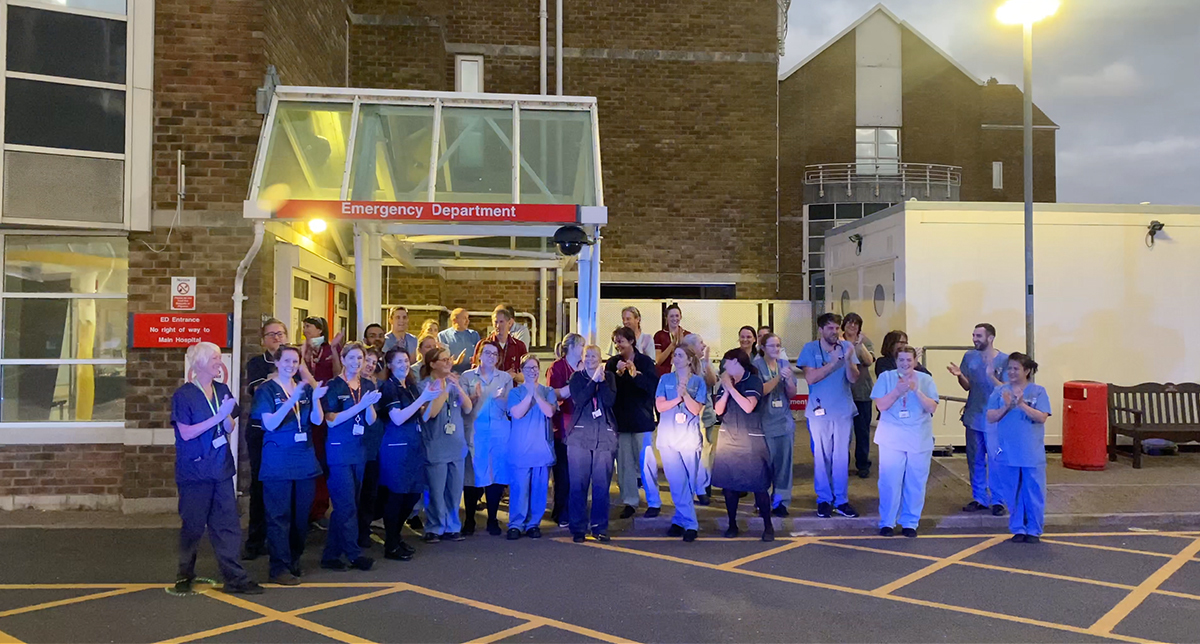
The COVID-19 pandemic, and the challenges it brings, are unprecedented.
However, we have never known as much as we do about the world, infectious disease or the human body as we do today. Advancements in medicine and science have brought us more tools, approaches and options to tackle a pandemic than ever before.
Consider that, just five months ago, we didn’t know this virus even existed—yet, we’ve had the full SARS-CoV-2 genome sequenced for almost four months. This has never happened in the history of science; had this pandemic occurred 20 years ago, we would have been in far more dire straits.
It can be hard to comprehend that there are still unanswered questions about this coronavirus and COVID-19—or that developing the tests, treatments and vaccine to conquer it pose a real challenge. Some say we may never find a vaccine. Others say it will take less than 12 months. While none of us really know, there is one thing I know for sure: it will be science that leads us to the other side of this pandemic.
The history of science is rooted in logic and a methodical process with defined criteria to prove something without a doubt. It’s not enough to develop potential treatments, tests and vaccines and hope they will work. We must prove they work with empirical science and unequivocal data—and we must do so as quickly as possible.
The mission of the healthcare industry has always been to improve and protect people’s health. I know we will rise to the occasion once again, but we need time to follow the scientific process. We must use logic and observation, test our hypotheses and ultimately rely on data. We must not take a leap of faith with anecdotal data or word-of-mouth information. This pursuit must be purposeful to give hospitals, pharmaceutical companies and biotech innovators the space to not only develop treatments and cures but be certain they will prove to be both safe and effective.
Sitting home not only gives these heroes the opportunity to find solutions, it protects the front-line workers—the doctors, nurses, hospital workers, truck drivers, shop workers, farmers and delivery persons—putting themselves at risk every day to keep our society functioning.
COVID-19’s economic impact has been devastating. Naturally, people are asking how and when to re-emerge, reopen and return to some form of normal. But the scientific models say we can’t go back until the numbers are low enough, and stay low enough, for our healthcare system to cope with new infections and hospitalizations, for us to test those suspected of being infected and for contact tracing of those potentially exposed. Otherwise, science tells us that we will absolutely have a second wave of infections. And if history is any guide, it could be far more deadly.
Recognizing that there are many jobs that simply cannot be done from home—a distinction often falling around socioeconomic lines—it’s even more critical that those of us lucky enough to be able to do our work from home do so for as long as possible. In fact, I consider it our duty for the good of society. This will help create a balance that allows essential workers and those who simply cannot work from home to work as safely as possible—all while giving science the time it requires to make a long-lasting difference.
There is no blueprint, roadmap or Harvard case study on what we should do. But we must do what is right, based on the data we have, to beat this disease. For me and my colleagues at Spectrum Science, that means we sit out, sit together and sit tight to give science the greatest chance. So give a sit about the science and let’s Beat the Sit Out of COVID-19.
This article was originally published on LinkedIn by Jonathan Wilson, Owner and CEO.